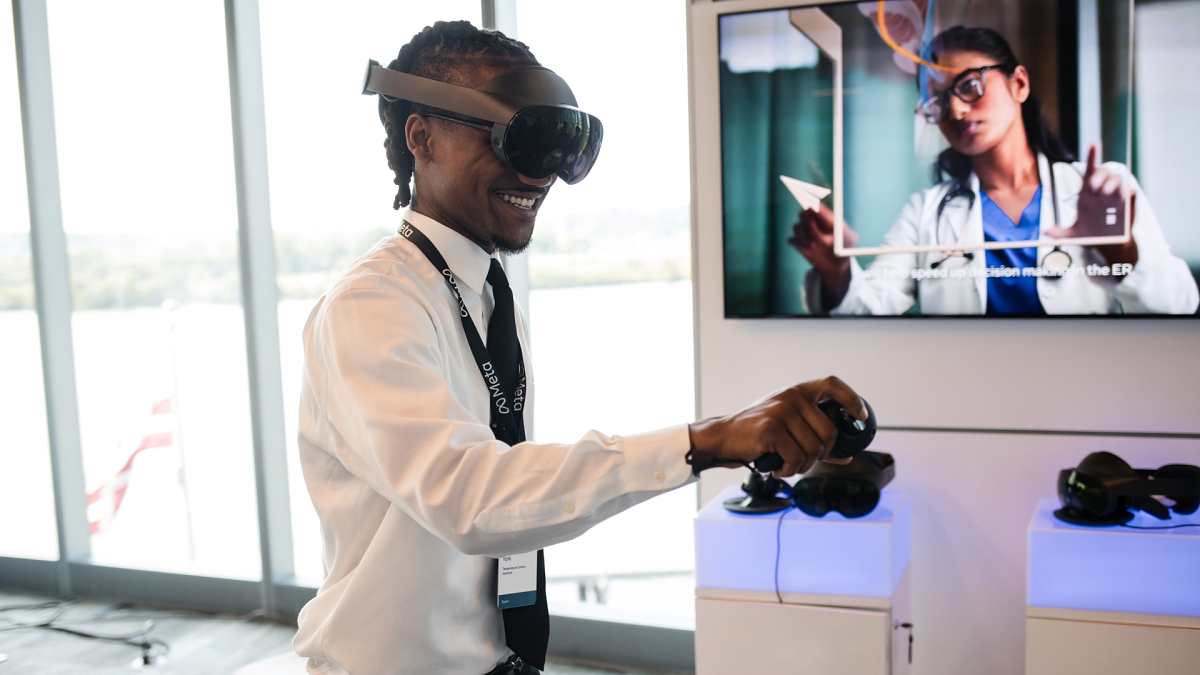Although it’s still in its nascency, the metaverse is tipped to become the future of the internet that’ll change how we work, shop, interact and even play video games.
With the belief that the metaverse has the potential to revolutionise learning and job training, Meta recently organised the Future of Work Summit in Washington DC to explore the impact of immersive technologies such as VR and AR on businesses and workers with academics, policymakers, entrepreneurs, and industry experts.
“The metaverse promises to make learning more active,” said Nick Clegg, Meta’s President, Global Affairs. “With virtual and augmented reality technologies, people can learn by doing, not just passively absorbing information. This has the potential to transform the way we provide new skills and new lifelong learning tools for people in the future.
Career longevity with VR
One of the ways Meta believes technology will shape the future of work is by leveraging VR. The Facebook parent company wrote that workers in physically demanding jobs like welding or sheet metal work often encounter age limitations.
The manual labour and challenges of accessing remote job sites can become increasingly difficult. However, experienced workers are now presented with a fresh opportunity to prolong their careers by becoming trainers in VR.
Michael Harris, a second-generation sheet metal worker said, “We’ve seen longtime workers extend their careers using VR platforms such as Interplay to learn new skills and change to less physical jobs within our industry. They benefit from maintaining an income while learning new skills, and younger generations are more engaged in the training and motivated to improve by getting a higher score in training modules just like a game.”
Minimising the dangers of work
Meta hopes to reduce the risk of danger for electricians who frequently tackle perilous tasks involving power lines and intricate machinery by using VR training modules. On platforms like Interplay, electrical apprentices can now engage in extensive practice sessions with virtual live wires, eliminating the risk of physical harm.
According to VR learning platform Talespin, immersive training through VR has demonstrated effectiveness that surpasses e-learning or classroom learning by a factor of four-and-a-half. In addition, individuals who undergo VR training experience a remarkable 275% surge in confidence when performing job-related tasks after completing the training.
New careers for job seekers
A recent report from Jobs for the Future (JFF) revealed that careers in XR are becoming increasingly accessible to individuals without college degrees or those seeking new employment opportunities. The report went on to highlight over 40,000 job postings related to XR or similar technologies, with 40% of them either requiring only a high school education or an associate degree to be considered or had no educational prerequisites whatsoever.
Alex Swartsel, managing director of Jobs for the Future commented, “These findings suggest that people who have been excluded or underrepresented in the technology sector because of education attainment barriers will soon be able to access, enter and advance through immersive technologies more easily.”
“For example, a learner can begin in an entry-level role such as XR technical support specialist and then up-skill to specialise for roles such as virtual-world design, sales, or consulting on immersive solutions for business needs,” said Swartsel.
Gradually reaching global adoption
A report from RetailX shows that 32% of gamers, 54% of games developers and 38% of businesses see the metaverse as the next iteration of the internet, blending physical and virtual worlds and experiences.
In addition, 25% of consumers and businesses believe that they may spend at least an hour a day in the metaverse – gaming, shopping, socialising, seeking entertainment or working.
Around 41% of individuals are fond of the metaverse due to its ability to allow them to experience things that can’t be experienced in the real world. However, 28% want to use the metaverse to escape their physical surroundings, while 40% want to use it to communicate with others more effectively.
Isa Muhammad is a writer and video game journalist covering many aspects of entertainment media including the film industry. He's steadily writing his way to the sharp end of journalism and enjoys staying informed. If he's not reading, playing video games or catching up on his favourite TV series, then he's probably writing about them.



































